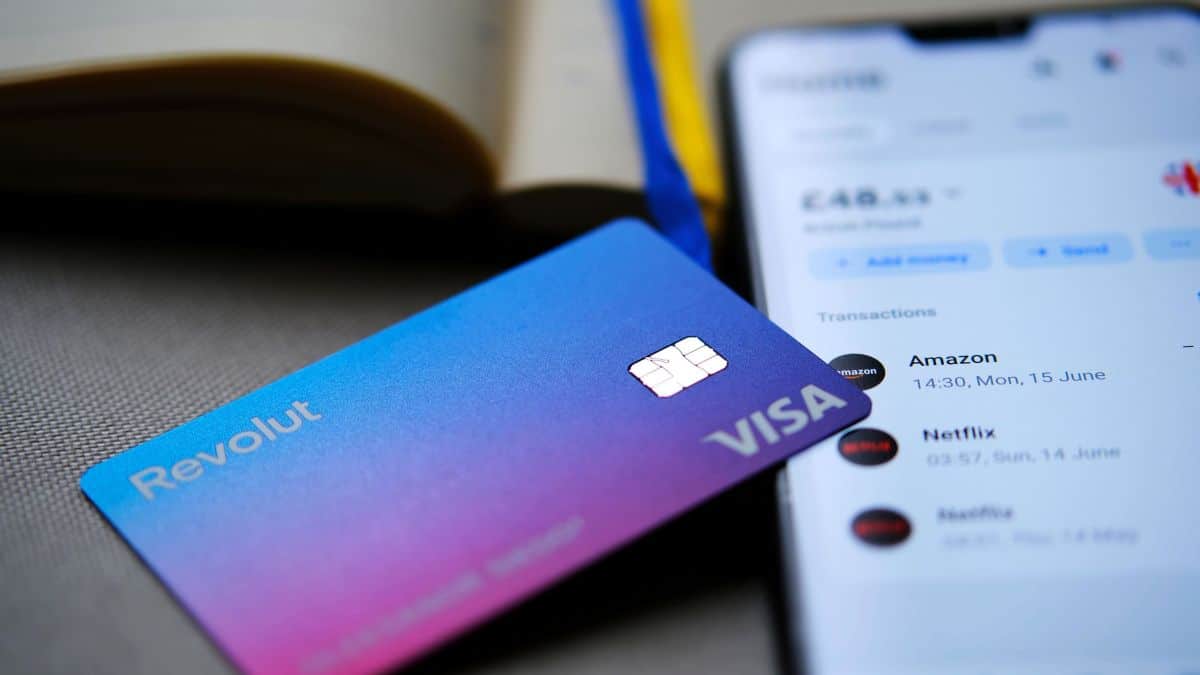Revolut makes a big impact: 75 billion dollars valuation and a historic fundraising supported by Coatue, NVIDIA and Fidelity. How is this European fintech, boosted by crypto, redefining global finance?
Revolut
Revolut, the well-groomed neobank, joins the European crypto dance with the MiCA license in pocket… and a stablecoin behind the scenes? A revolution in a tie that already irritates the old players.
Stripe, once skeptical, now has its own in-house blockchain. Officially for stablecoins, unofficially to outshine the crypto heavyweights. Engineers grumble, Collison celebrates.
A star shines brighter than the others in the saturated arena of neobanks: Revolut. In London, ambitions are no longer hidden. With a funding round of one billion dollars in preparation, the company aims for a colossal valuation of 65 billion dollars. And at the heart of this ascent? One word: crypto. Because it's not just a diversification, it's a strategy. A conviction. A compass.
Revolut is setting up in Paris, spending a billion, hiring 200 people... But behind the neobank, will crypto go all in to dominate the European economy? A mystery to follow.
The British fintech Revolut shows exceptional performance in 2024, doubling its profits to $1.3 billion. This spectacular growth is explained by the influx of 15 million new users and the explosion of crypto trading following the rise of the markets.
Revolut plans to launch its own stablecoin to provide a stable and compliant alternative in the crypto universe.
By introducing Bitcoin trading to its millions of users in 2017, the neobank Revolut has undeniably played a major role in the cryptocurrency boom. Thanks to the simplicity of its banking application and account opening process, beginners are particularly well-catered to.
In today's digital era, managing money via mobile applications has become common, and with it, the need to secure our online banking accounts. Revolut, as a leader in digital banking services, offers unparalleled flexibility and convenience for daily transactions. However, this ease of access must be accompanied by increased vigilance to protect our resources against fraud and cyberattacks. Here is an overview of best practices to secure a Revolut account.
Adapted to the demands of the modern economy, the Revolut card emerges as one of the best tools for effective personal finance management. It simplifies international transactions, investments, and daily expense tracking with remarkable ease. This article guides you through the advanced features of this card and presents useful tips to fully leverage its benefits.
In a constantly evolving financial world, comparing Revolut and traditional banks becomes a current topic for consumers looking for banking solutions that fit their modern lifestyles. Revolut offers a revolutionary approach to banking, prioritizing accessibility and innovation. Conversely, traditional banks rely on years of experience and trust to provide comprehensive and personalized services. But which solution should you choose between these two options? This article presents the services, exclusive offers, use cases, and user feedback for each type of banking service to help readers make an informed choice based on their specific needs.
In a world where financial management is constantly evolving, Revolut presents itself as a banking solution that combines technology and ease of use. This neobank transforms how customers interact with their finances by offering easy and quick access to a fully digital bank account. With advanced features and a user-centered approach, Revolut meets the demands of a global and connected clientele. This article provides a detailed guide on opening a Revolut account, exploring the app download, account creation, plan selection and management, and tips for daily account usage.
In a world where finance is becoming increasingly digital, Revolut stands out as a banking platform that promises to simplify financial management through technology. With its mobile app and banking cards, Revolut meets the expectations of a global clientele seeking flexibility and efficiency. This article delves into the Revolut ecosystem, detailing its features, operational model, and comparing its offerings to traditional banks and other digital players.
SEC attacks are wreaking havoc on the crypto sector, and companies are not exempt. Revolut recently made an exit that is unlikely to please all its customers, as they will soon no longer be able to trade certain tokens. So, goodbye to Solana (SOL), Polygon (MATIC) and Cardano (ADA)?













